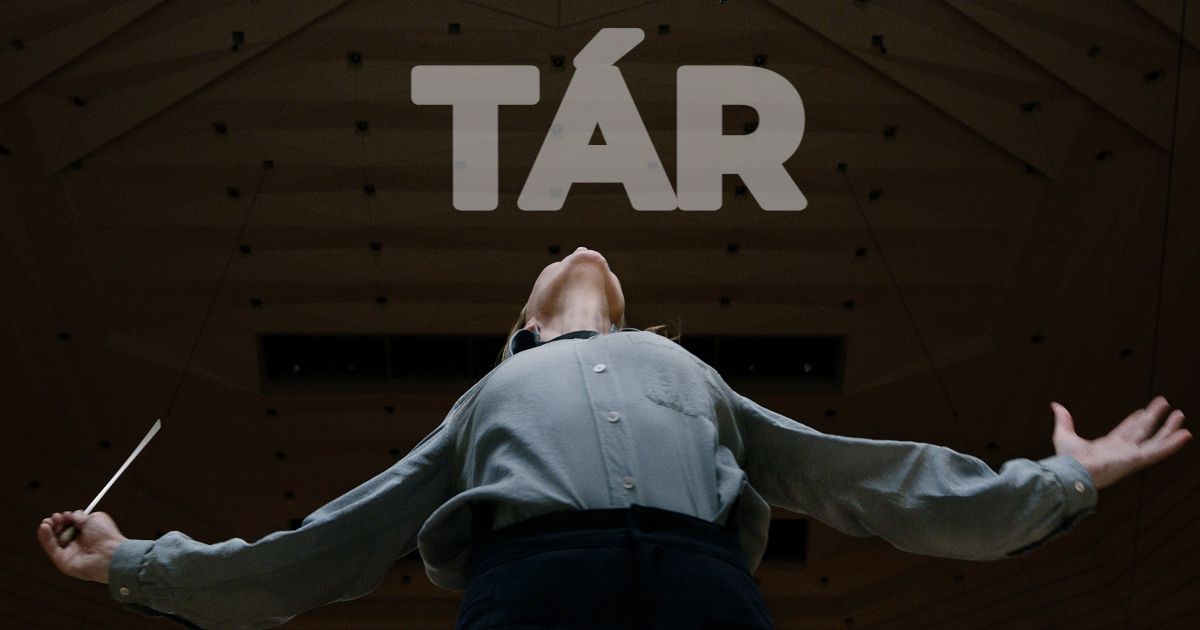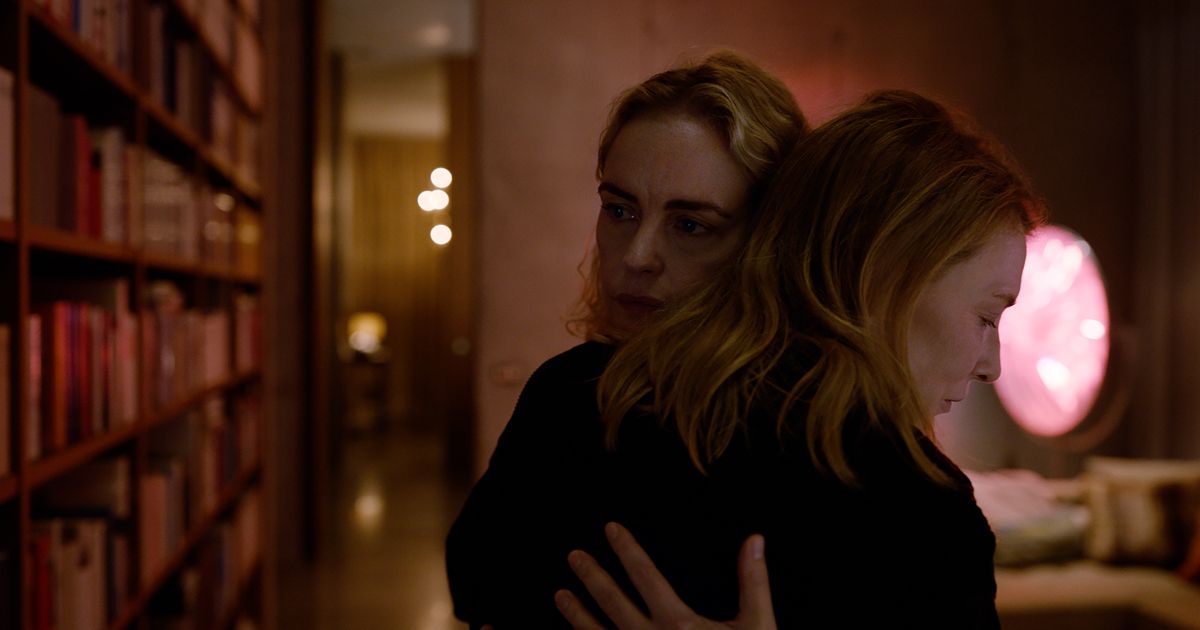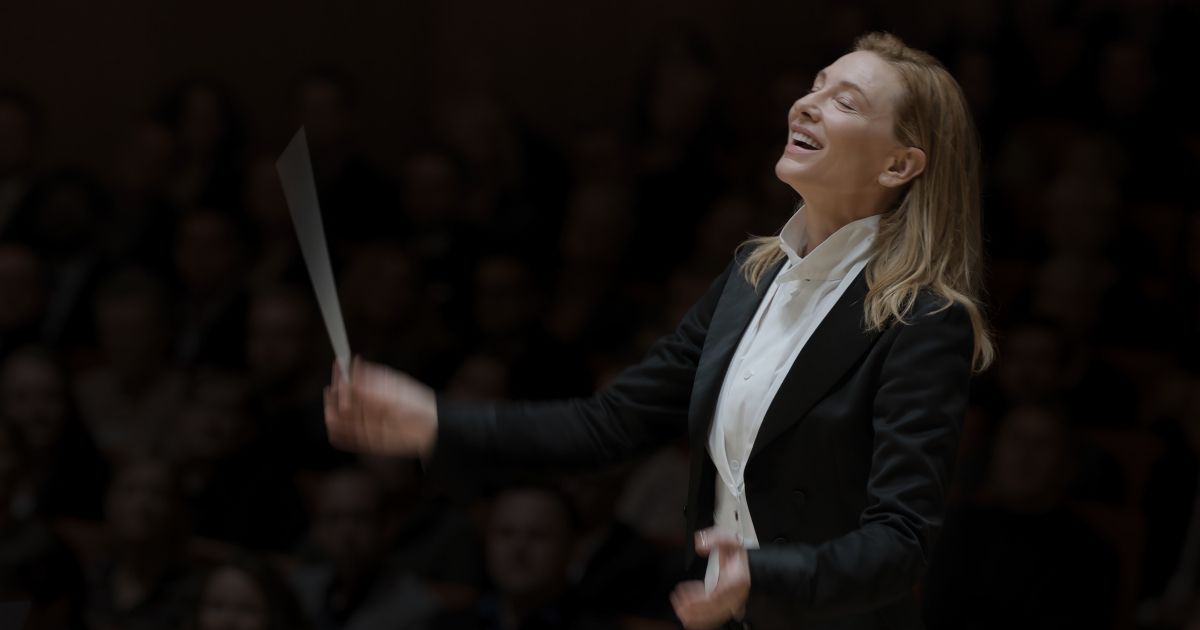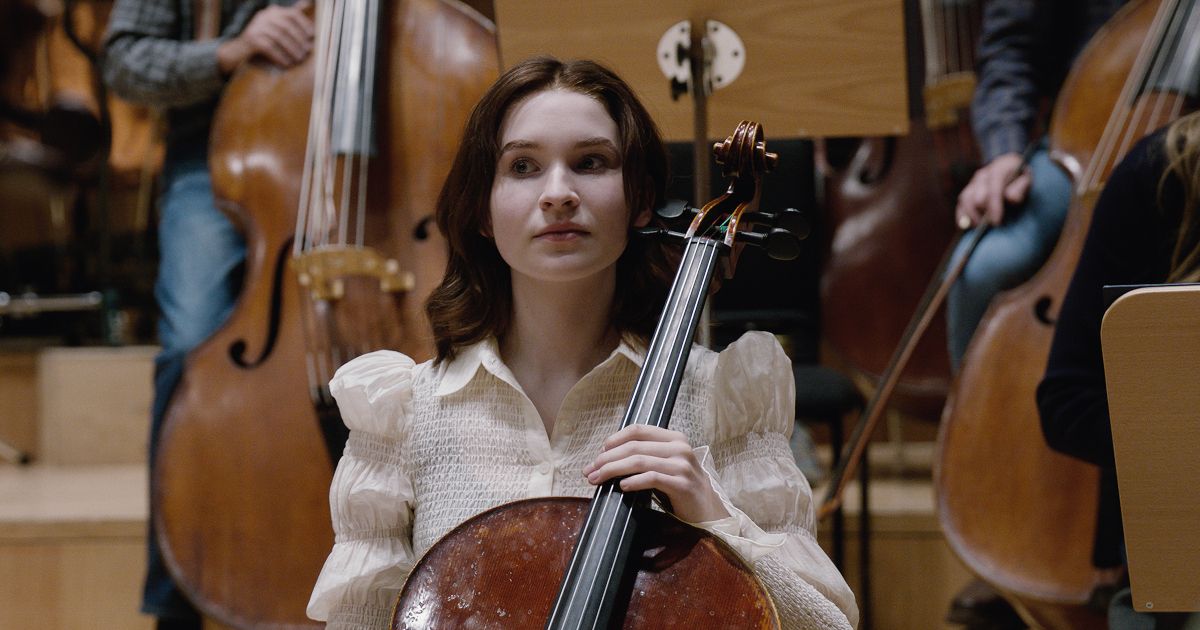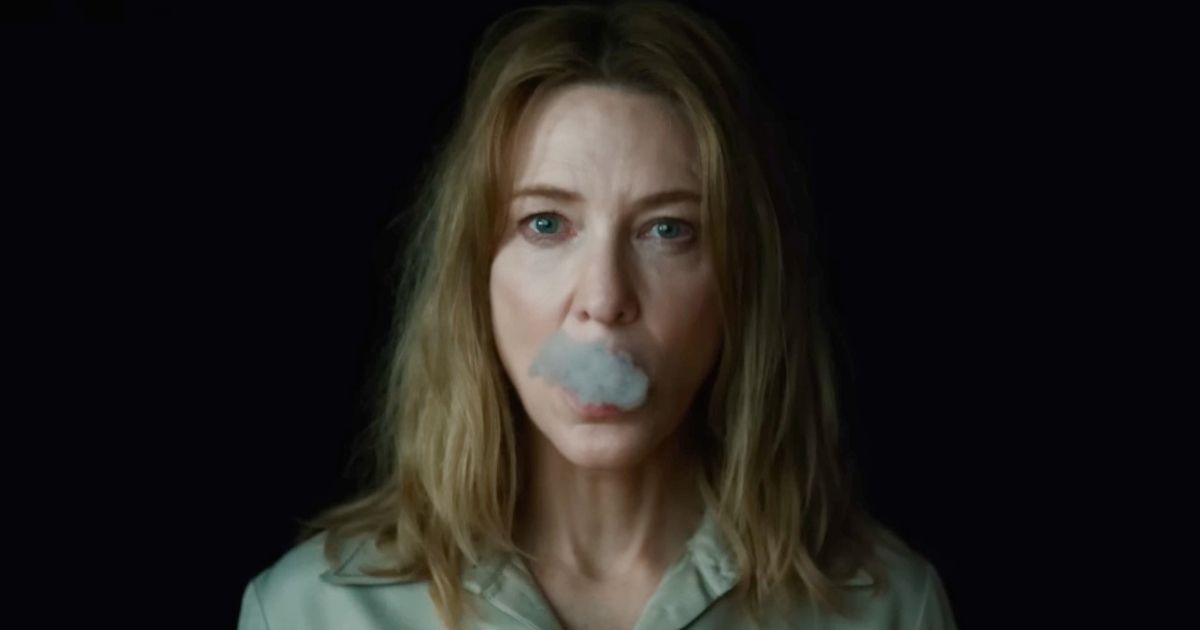It could be said that Cate Blanchett has given her 'performance of a lifetime' enough times to make a reincarnated Buddhist blush. Like Meryl Streep, perhaps the only other actor as disturbingly chameleonic, Blanchett almost seems to be a void who lets each character she plays wholly fill her own blank space. The aggressive newscaster in Don't Look Up, Elizabeth I in Elizabeth, Bob Dylan in I'm Not There, the deeply neurotic elite in Blue Jasmine, Katherine Hepburn in The Aviator — it seems impossible that these characters are all the same person.
Blanchett does it again in TÁR, playing a woman who is deeply unlikable but utterly magnetic. She plays Lydia Tár, an internationally renowned conductor and well-respected brand of her own; in reality, she is a slow-moving trainwreck of the soul, a pathological liar whose corruption and abuse of power is gradually backing her into a corner from which there is no escape. It's an incredible performance practically certain to win the Best Actress Oscar, and the film which is built around her, while glacial in its pacing, is an important reflection of our current cultural moment. TÁR is impossible to ignore.
Todd Field Triumphantly Returns With TÁR
Todd Field has finally returned to the director's chair with this film after a 16-year absence. After making the brilliant In the Bedroom and Little Children, Field wandered through the wilderness of development limbo with several fascinating projects, including a 20-hour Showtime project with Daniel Craig that Field had already written 2,000 pages for. Nothing came to fruition for Field, who spent much of that time simply being a good father, until Focus Features decided to go through with TÁR, which seemed like more of a shock than all the disappointments he experienced the past 16 years.
Thank God they did, because TÁR is an infinitely fascinating, psychologically intense portrait of corruption, power, cancel culture, and what art even means anymore in a so-called 'woke' era. The film focuses on the titular Tár, who is introduced in an interview held by The New Yorker, where she is asked fawning questions and celebrated for her litany of accomplishments. Lydia is rehearsing the completion of Gustav Mahler's cycle of symphonies, and only has one left (Mahler's Fifth). It is through the rehearsal for Symphony No. 5 that Lydia's carefully manicured life will fall apart.
Lydia Tár, Serial Groomer
Lydia's undoing is her own doing. She is what may be known as a serial predator, or a groomer. A self-described "U-Haul lesbian," Lydia has a notorious history, gossiped over in whispers, of using her powerful position to sleep with young women. She promises the world to young musicians and students, and leaves broken hearts (and careers) in the dust she kicks behind her.
One of these young women, Krista Taylor, has seemed to have become a stalker, sending unanswered emails to Lydia in the hopes of reconnecting. Once Lydia is done with someone, however, that person is tantamount to non-existent. "Every relationship you have is transactional," one character tells her.
If there's one person exempt from this transactional analysis, it's Lydia's adopted daughter Petra. The young, adorable Petra seems to be the only person in the world that Lydia isn't using for something, and she truly does love her. In one fantastic scene, Lydia threatens a child who is bullying Petra, telling her, "I will get you. Don't tell any grown-ups. They won't believe you, because I'm a grown-up too." It's a funny but revealing moment for Lydia, showcasing not just the one genuine love in her life, but her absolute authoritativeness and her reckless insistence on displaying it, no matter the consequences.
Cate Blanchett is the Best Actress of the Year in TÁR
In short, she's an incredible character, a fascinating amalgam of narcissism, paranoia, cruelty, childishness, and wounded romanticism. The character was written specifically for Cate Blanchett, and if she had turned it down, then "the film would have never seen the light of day," Field said in the director's statement.
A brilliant artist played by a brilliant artist, Blanchett-as-Lydia dominates every single scene, no matter how great the supporting cast is (especially Nina Hoss as Sharon, Lydia's wife and the first chair in her orchestra, and the stunning Sophie Kauer as Lydia's new interest). Blanchett is a haughty bulldozer, looking down on the world as she tramples over everything in her path, emotionally immune to ramifications.
However, she is disturbed in an increasingly evident way. One of the first words used to describe Lydia in the film is "haunted," and Blanchett looks dramatically plagued by apparitions here. Lydia wakes up in the middle of the night, startled by odd noises, frightened by things in the corner of her eye. It's almost as if, due to her incapacity to express and process guilt from her actions, her subconscious is literally haunting her in order to handle what she's done.
As events spiral out of Lydia's control and consequences catch up with her, the haunting of Lydia Tár becomes more and more intense (as does the absolutely entrancing score from Hildur Guðnadóttir, which also includes selections from some iconic classical music).
Cancel Culture, Wokeness, and the Tricky Questions TÁR Poses
Rather than become some preachy polemic about groomers that exploits the cultural currency of #MeToo and trendy wokeness, TÁR remains a surprisingly well-balanced, ideologically curious film that can appeal to anyone interested in a dark character study, regardless of politics.
A line in the film illustrates how it does so, when Lydia explains that great music doesn't give people answers, but instead keeps asking questions; answers exclude people, while questions invite them in. TÁR is an invitation to discuss some pressing issues of our time without alienating anyone by assuming that it has all the right answers.
Perhaps the stand-out scene in TÁR encapsulates this better than anything. It's a single unbroken shot of Lydia giving a lecture to a class of conducting students, and Field's camera carefully, unobtrusively follows Blanchett around the room as she teaches and gets into a heated debate with a student. The student says that he doesn't like Bach because the legendary composer was a misogynist, prompting a conversation about identity politics and art. Transcending the typical 'can you separate the artist from the art' question which everyone asks themselves after the crimes of people like Polanski, R. Kelly, or Bill Cosby, TÁR goes much deeper, asking, 'can you separate yourself from the art?'
Blanchett's character is the perfect one for our times, a mirror image of the issues that society has begun grappling with, and yet TÁR is equally timeless as both a great character study and a searing indictment of 'high culture' and the art world. Lydia is an all-time great movie character regardless of whatever cultural baggage this film uses as a carry-on, but as dastardly as she often is, a woman like Lydia Tár doesn't just happen.
Conspiracies of silence, corrupt institutions, opportunistic loyalists, and a society which doesn't particularly care about or believe young women — all of this is required for Lydia to do what she does so well, and TÁR is masterful at elucidating the flaws in all our systems. While the ending may stretch a bit too long (though it's wonderfully ambiguous, and can be read as either hopeful or hilariously dark), Field has made his best film, and one of the three best films of the 60th New York Film Festival. Regardless of how many catlike lives Blanchett may have, Lydia Tár is her best performance in this one, and that's saying something.
From Standard Film Company and EMJAG Productions, TÁR will be released on Oct. 7th through Focus Features in the United States and through Universal Pictures internationally.

